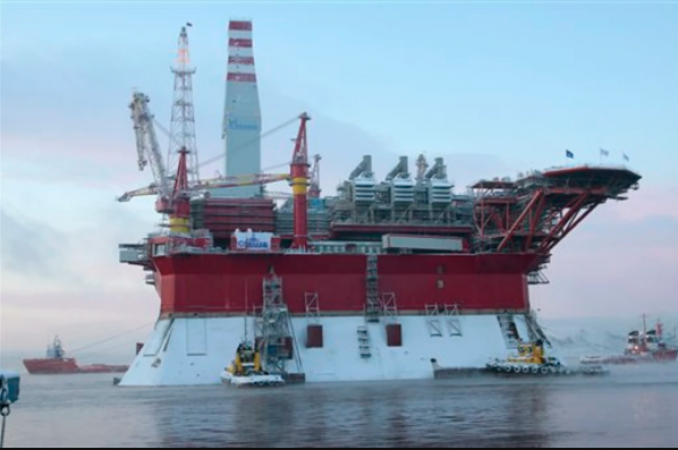
MOSCOW: Russia announced on Friday it would reduce oil production by 500,000 barrels per day from January, following a price cap imposed on Russian crude by Western countries because of its actions in Ukraine.
In comments reported by Russian news agencies, Deputy Prime Minister Alexander Novak said, "As of today, we sell absolutely all of our crude production, but as we said earlier, we will not sell oil to those who follow directly or indirectly." Price determination'."
"Russia will voluntarily reduce production by 500,000 barrels per day in that regard. This will help improve relations in the market," he said.
A possible Russian response to the cap, according to analysts, would be to reduce production in an effort to prop up oil prices. As less oil reaches the global market, this could ultimately result in higher gas prices at the pump.
Benchmark Brent crude rose 1.5% to $85.75 a barrel in Friday trading.
Russian oil exported to non-Western countries is now limited by the Group of Seven major democracies to a price of $60 a barrel. The aim is to keep oil flowing to the world while limiting Russia's financial leverage that it can use to finance its offensive against Ukraine, avoiding a price hike last year.
Oil priced above the limit is enforced by prohibiting it from being carried by Western companies, which dominate the shipping and insurance industries.
Russia has said it will not sell oil to countries that adhere to the cap, but this is irrelevant as Russian oil has been trading below the cap recently.
However, caps, EU sanctions on the majority of Russian oil, and low demand for crude have allowed consumers in India, Turkey, and China to demand significant discounts on Russian oil.
Also Read: Russian economy will resume growth this year according to the Central Bank
Given that oil demand is falling due to a slowing global economy, it is unclear what effect a reduction of 500,000 barrels per day would have.
In an effort to prop up oil prices, the OPEC+ alliance of oil producers, which includes Russia, announced in October that it would cut production by 2 million barrels per day. However, by December, prices had fallen below $80 a barrel.
Asked whether Russia had discussed its new production cuts with OPEC+ members, Kremlin spokesman Dmitry Peskov replied that "talks were held with some OPEC+ members" before the decision was made public. He did not comment further.
However, Novak insisted in a later statement that Moscow made the decision without consultation.
No one has been consulted about it; According to Russian media, the Deputy Prime Minister said, it is a voluntary cut.
After failing to weaponize natural gas last year, the new cuts "could be an early sign that Russia may try to weaponize oil supplies," according to Simone Tagliapietra, an energy policy expert at the Bruegel think tank in Brussels. ".
But doing so can be challenging because it is easier to find new sources of oil, which are traded through a global tanker network, than it is to find new sources of natural gas, which before the war was primarily transported by pipeline. was transported to Europe through ,
Most natural gas supplies to Europe have been halted by Russian exporter Gazprom because of technical difficulties and the refusal of some customers to pay in Russian roubles. European officials describe this as retribution for their support of Ukraine.
Although Europe experienced higher natural gas prices as a result, it was able to partially offset the loss of Russian supplies from other sources, such as ship-borne liquefied gas from the United States and Qatar.
Also Read: Economic ties between China and the US and the global economy: Rebalancing vs. Decoupling
Although they have declined from their record highs last summer, natural gas prices are still three times higher than they were before Russia piled troops on its border with Ukraine.